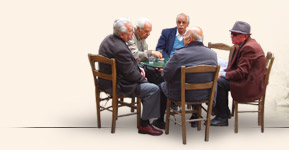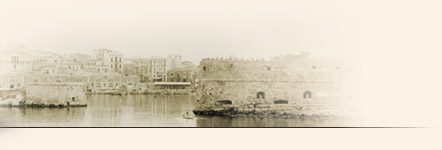Once they had broken free of the Germans, after the occupation people had a touch of madness about them. They wanted to let off steam by having fun, doing what they hadn't done for so many years, and to rid themselves of sadness and gloom.
That was why the carnival was a highpoint in post-war Heraklion. The celebrations started on Shrove Thursday (in the run-up to Lent) and ended on Clean Monday (first Monday in High Lent). In those days I would go for a fortnight without proper sleep. There were dances every evening. Ladies in high society made grand appearances in dresses made in Athens or by skilled seamstresses in Heraklion, having worked out how many dances they would go to. There was a beauty contest at every dance, and the most beautiful girl won. On the last Sunday, all the winners took part in a contest to choose the Carnival Queen, who had her own float.
Carnival was a wonderful time of year in Heraklion. There was no funding body, so those who were comfortably off would donate large sums. There were also large numbers of volunteers, who offered their assistance because they could not afford to give money. One year I remember that a decorator came from Athens and made a huge, impressive carnival king out of beatufully painted papier mache. The floats were cars so covered up in decorations that you couldn't see them, and the costumes were very well made. I will never forget a carnival dance held one evening by the tennis club in the Doré, before it was built the way it is today. We all went out dancing the congo onto Eleftherias Square, where the town band was. When we came dancing back into the ballroom, the only people left were the band members playing music.



